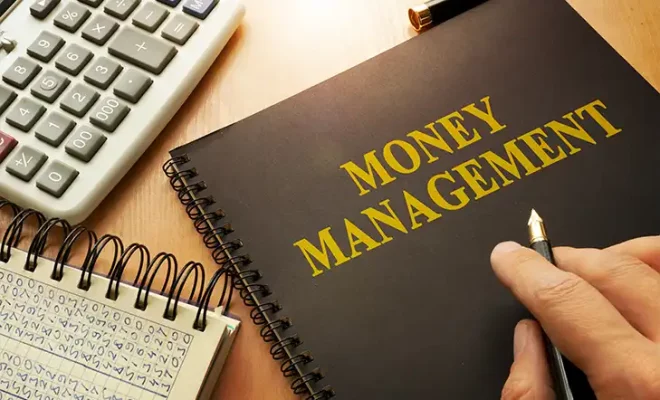DIY Money Management vs. Hiring a Professional For Your Financial Needs

When it comes to money management, there are a lot of different schools of thought. Some people believe it’s best to do everything independently, while others think it’s always worth hiring a professional. So, which is the right approach for you?
There are a few things to consider when making this decision. First, do you have the necessary financial acumen and knowledge to make financial decisions? Are you good with numbers, accounting, and financial planning? Are you confident in your ability to stay organised? If yes, then DIY financial planning might be a good option for you. On the other hand, if you tend to struggle with budgeting or find financial planning overwhelming, then professional money management could be a better solution.
Ultimately, the decision to hire a professional financial advisor or not is a personal call that must be made after a careful assessment of your financial situation and goals. Read further to understand if DIYing your finances is a good call or if you should consider hiring a professional.
Table of Contents
What is DIY financial planning?
DIY financial planning can be a great way to control your finances and ensure that your money is being managed in the way you want. Not to mention, professional money management can be costly and may not always align with your financial goals.
Planned DIY can help you identify risky investments, manage cash flow and debts and maximize profits. With DIY financial planning, you have complete control over your decisions and can make choices that are best for you. However, this requires you to put in dedicated time and effort on your part to track your finances and learn about accounting, taxes, and financial planning. So, if you are willing to put in the work, the DIY approach can be a great way to save money and ensure that your finances are on track.
Let’s study a few steps involved when DIYing your finances:
1. Chalk out a financial plan
Money management and financial planning are the first steps when DIYing your finances. According to a recent survey, only 33% of Americans have a written financial plan.
You can start by writing down all the aspects of your financial situation to have an accurate idea of your current finances. A financial plan must include the following components:
- Your net worth
- Your present and future financial goals
- Your current monthly expenses
- Your existing debt and taxes
- Emergency funds
- Insurance and premium payments
- Property planning
You can then chalk a proper strategy for each of the above-mentioned pointers. Once you have your strategy, plans, and goals ready, you can then work towards achieving them. Managing your finances can be intimidating at first, but with sufficient experience and knowledge, you may improve at it.
2. Improve your tax situation
It is no secret that professional money management can help navigate your tax liabilities. However, you can effectively manage and reduce your taxes by carefully planning and taking advantage of all available deductions and credits. This can significantly help lower your tax bills.
In addition, DIY financial planning can also help to identify areas where additional income can be generated. By proactively managing your finances, you can minimise your tax liability and keep more of your hard-earned money.
3. Follow your instincts
When DIYing your finances, it’s important to follow your instincts. And while there’s no shortage of advice, only you know what’s right for you. Ultimately, it’s up to you to make the final call. Keep in mind that there is no one-size-fits-all solution. What works for one person may not work for another since each individual has unique financial needs and goals. If you’re feeling lost or confused, you may seek professional help. But if you’re confident that you can handle your finances independently, DIYing your finances can be a good call.
For starters, decide your financial goals and understand the level of risk you can tolerate. Also, remember that DIY strategies will only work when you think independently and bring some discipline to your investment process.
4. Plan wisely for your retirement
Retirement planning is essential for everyone, but it is especially crucial if you manage your finances independently. Without the help of a financial advisor, it can be challenging to know how much you should be saving and where you should be investing your money.
So, if you decide on DIY financial planning, devise strategies to save and invest money for your retirement. You need to understand the nitty-gritties of retirement accounts like 401(k)s, IRAs, their contribution limits, withdrawal rules, etc.
Retirement planning is an essential part of financial planning and one must be take proper care when DIYing finances. Several studies have highlighted the fact that many Americans fail to meet their retirement expenses due to poor financial planning and having less post-retirement money at their disposal.
So, should you look to hire a financial advisor to manage your money? Read further to know.
When to hire a financial advisor
Many people try to handle their finances independently, but there are certain situations where it may make more sense to hire a professional. For example, if you’re starting a business, going through a divorce, or experiencing major financial upheaval, working with a financial advisor can help you better manage your finances and attain your goals.
A good advisor can also provide much-needed support and advice. So, if you’re facing a significant life change or simply don’t feel confident about managing your finances on your own, hiring a financial advisor may be a wise move.
Read further to know when it might be beneficial for you to hire a financial advisor:
1. You are overwhelmed at the thought of managing your money on your own
When it comes to financial matters, many people feel scared and may possibly become overwhelmed at the prospect of managing their financial affairs. Managing money can be daunting, especially if you lack experience. This is where a financial advisor can help. A good financial advisor will help you to understand the basics of money management, including taxes, market regulations and cycles, budgets, and more. They can also help keep your emotions in check and grow your wealth in the long-term.
So if you feel scared about managing your finances, investing in professional money management can help you navigate the complex world of finance.
2. You are new to investing
When you are new to investing, it can be difficult to know where to start. Should you invest in stocks, bonds, or mutual funds? How much risk should you take? How to calculate taxes?
These are all critical questions that a financial advisor can help you answer. A financial advisor can also help you develop an investment strategy tailored to your specific goals and risk tolerance. In addition, the advisor can help you manage your investment portfolio and make adjustments as and when needed in response to changes in the market.
So, if you need help making investment decisions, working with an advisor may be a good call.
3. You are nearing retirement
As you near retirement, you face many critical financial decisions that will have a lasting impact on your quality of life. Whether deciding how to invest your retirement savings or when to start collecting Social Security benefits, it is important to get professional advice.
A good advisor can help you navigate the complex landscape of retirement planning and also offer personalised advice based on your unique circumstances. In addition, a financial advisor can help you stay disciplined with your savings plan and make sure that you are on track to meet your retirement goals.
4. You lack sufficient time to acquire requisite financial knowledge
Even if you may be willing to acquire the necessary financial knowledge and develop the needed expertise to handle your own finances, you may not be able to devote sufficient time to the same. Here is where a financial advisor can step in and help you with your financial needs, be it budgeting, investment planning, retirement planning, estate planning, taxes, and more. In addition, they can help you to find the best financial products and services for your needs.
Hiring a financial advisor when you lack time due to professional, personal, or any other commitments can be a wise decision.
5. You have inherited property or a considerable sum of money
Managing inheritance and the legalities associated with it can be tricky. Also, you may not possess the expertise to understand how inheritance of property or a large sum of money works. You would also need to manage the associated taxes that come with an inheritance.
So, if you have recently inherited property or a large sum of money, you may be wondering if you need to hire a financial advisor. Now, there are a few things to consider when making this decision. First, do you have the time and knowledge to manage the inheritance? Second, how complex is your financial situation? Finally, what are your goals?
If you want to grow your inheritance and ensure it lasts for future generations, working with an advisor can prove to be beneficial. Also, if you have multiple sources of income and assets, it may be helpful to have someone who can help you keep track of everything.
To summarise
When it comes to managing your finances, there are pros and cons to both hiring a financial advisor and taking the DIY approach. If you hire a financial advisor, you will have access to professional expertise and guidance that can help you make sound financial decisions. In contrast, taking a DIY approach to your finances could require effort and knowledge on your part, but it can also be more empowering and cost-effective. Ultimately, the best decision for you will depend on your personal circumstances and financial goals.
Use the free advisor match tool to match with experienced and certified financial advisors who will be able to guide and advise you effectively on how to manage your finances. Give us basic details about yourself, and Paladin Registry will match you with 1-3 professional financial fiduciaries that may be suited to help you.


















